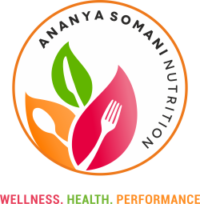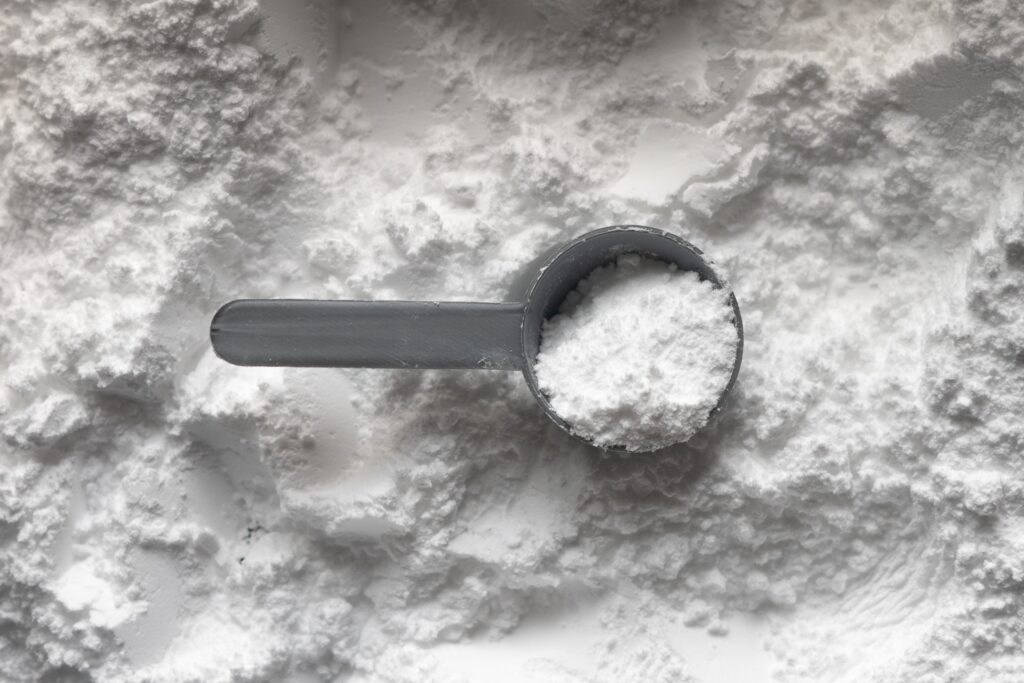With so many supplements available nowadays, it can be overwhelming and confusing to say the least. The good news is that there are sports supplements with evidence to support benefits, read on to know more about 5 of them.
All things power & strength
Creatine is hands-down the most safe and effective sports supplement. This supplement helps to saturate the muscles’ creatine stores, which are used during exercise. The benefits include improving strength, power, training output, work capacity, recovery, and it can also help in preventing injuries and have protective health benefits too. Whilst it’s most popular and proven to be effective in strength and power based sports and training (e.g. powerlifting, sprinting, swimming) it may also be beneficial in endurance sports, such as for the burst of energy required at the finish line.
- Dosage: Slow loading of 3-5g creatine monohydrate per day OR loading with 20-25g creatine for 5-7 days and then maintaining with 3-5g per day thereafter. Unless one is time poor, the slow loading method is absolutely fine and possible easier to tolerate.
- Timing: Anytime, everyday
Note: Creatine can lead to water retention which slow loading protocols help to manage this. The water weight gain is typically of significance for athletes involved in weight sensitive sports.
The one that wakes you up
The humble caffeine can actually be beneficial to exercise performance be it strength or endurance exercise. As a stimulant of the central nervous system, it helps reduce the perceived effort of exercise, helping athletes to be more alert and push themselves. While caffeine is easily available in drinks such as coffee, these can often have variable amounts of caffeine itself. Ideally, the appropriate dosage should be consumed through products such as caffeine gums, tablets, energy gels or pre-workout powders where the exact caffeine content is known.
Note: Caffeine tolerance is extremely individual, it can cause GI discomfort, anxiety or other side effects and is hence recommended to trial prior. Further, regular high consumption of caffeine may impact it’s benefit or the caffeine ‘hit’.
The endurance specialist
Dietary nitrates are converted to nitric oxide in the body which can have benefits including increased exercise efficiency, delayed fatigue and improved oxygen blood flow. Potential applications include endurance and intermittent activities such as cycling, swimming, running, especially upto 40 minutes in duration. Green leafy vegetables and beetroots are actually great sources of nitrates and eating these can before endurance events, can be a good idea. About 100-150g of beetroot would provide a reasonable amount of nitrates.
- Dosage: 300-600mg nitrates or 70ml concentrated beetroot juice that provides adequate nitrates
- Timing: 2-3 hours pre-exercise, for 2-6 days
Note: Avoid brushing your teeth or using mouthwash after having beetroot juice, as that affects the conversion of nitrates to nitrites.
The buffers
During intense, anaerobic exercise (low oxygen available), hydrogen ions begin to accumulate in the muscle and blood. This acidic environment can lead to fatigue and decrease exercise performance and the body’s buffering systems help to manage the pH. Two sports supplements, namely beta alanine and sodium bicarbonate can support the buffering system of the body:
Beta-alanine helps increase muscle carnosine levels, an intra-cellular buffer, which helps to prevent the build-up of hydrogen ions that are formed during high intensity, short duration anaerobic exercise. It can help delay fatigue in high intensity, short duration exercise (upto 10 minutes). Beta-alanine supplementation can be beneficial for increasing training volume in resistance exercise and support performance in power sports.
Note: Beta-alanine consumption can cause paraesthesia or tingles, hence a split dose may be better tolerated.
Sodium bicarbonate is an extra-cellular buffer that helps increase blood bicarbonate content to neutralize the hydrogen ions formed during intense exercise. This can help increase the training and competition performance, delay fatigue during short duration events or longer events with repeated bouts of high intensity exercise for upto 8-10 minutes, for example in sports such as Crossfit, swimming, cycling. A systematic review found that sodium bicarbonate had a moderate improvement in exercise performance in nearly half of the 35 studies evaluated. Thus, the research is not fully supportive on it. Since it is a safe supplement, it can be trialled in training to individually determine its benefit for the athlete.
- Dosage: 200-400mg/kg sodium bicarbonate
- Timing: 2-3 hours pre-exercise, preferably with a carbohydrate rich meal
Note: It can cause gastrointestinal distress (e.g. nausea, stomach pain) as well as potentially fluid retention.
Important: Any supplement should be trialled in training prior to competition and it is advisable to seek guidance from a sports dietitian for tailored advice, especially before starting anything new.
References
- Guest, N.S., VanDusseldorp, T.A., Nelson, M.T. et al. International society of sports nutrition position stand: caffeine and exercise performance. J Int Soc Sports Nutr 18, 1 (2021). https://doi.org/10.1186/s12970-020-00383-4
- Hadzic, M., Eckstein, M. L., & Schugardt, M. (2019). The Impact of Sodium Bicarbonate on Performance in Response to Exercise Duration in Athletes: A Systematic Review. Journal of sports science & medicine, 18(2), 271–281.
- Jones A. M. (2014). Dietary nitrate supplementation and exercise performance. Sports medicine (Auckland, N.Z.), 44 Suppl 1(Suppl 1), S35–S45. https://doi.org/10.1007/s40279-014-0149-y
- Kreider, R.B., Kalman, D.S., Antonio, J. et al. International Society of Sports Nutrition position stand: safety and efficacy of creatine supplementation in exercise, sport, and medicine. J Int Soc Sports Nutr 14, 18 (2017). https://doi.org/10.1186/s12970-017-0173-z
- Maughan RJ, Burke LM, Dvorak J, et al IOC consensus statement: dietary supplements and the high-performance athlete British Journal of Sports Medicine 2018;52:439-455.
- Percival, M. E., Martin, B. J., Gillen, J. B., Skelly, L. E., MacInnis, M. J., Green, A. E., Tarnopolsky, M. A., & Gibala, M. J. (2015). Sodium bicarbonate ingestion augments the increase in PGC-1α mRNA expression during recovery from intense interval exercise in human skeletal muscle. Journal of applied physiology (Bethesda, Md. : 1985), 119(11), 1303–1312. https://doi.org/10.1152/japplphysiol.00048.2015
- Trexler, E.T., Smith-Ryan, A.E., Stout, J.R. et al. International society of sports nutrition position stand: Beta-Alanine. J Int Soc Sports Nutr 12, 30 (2015). https://doi.org/10.1186/s12970-015-0090-y

